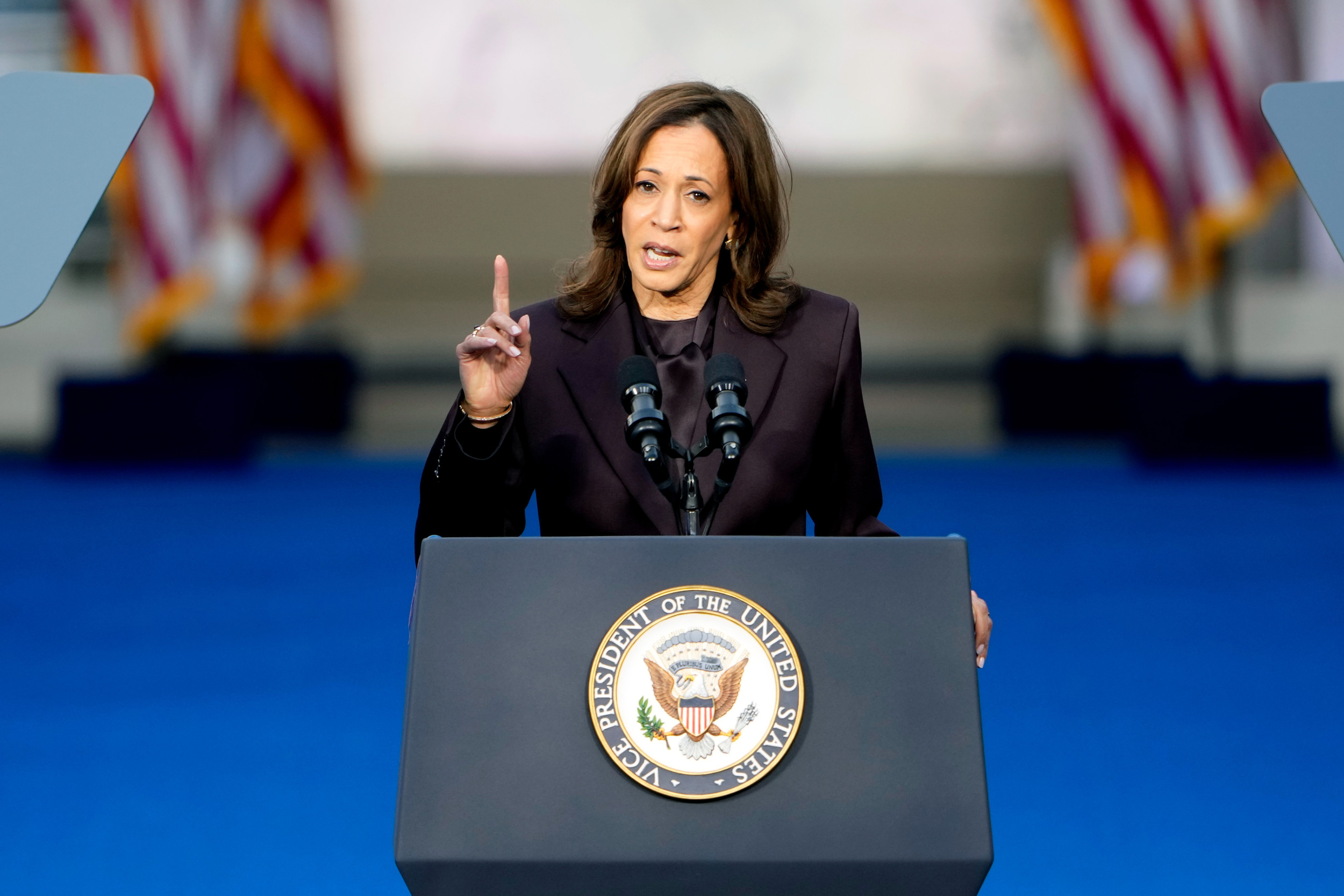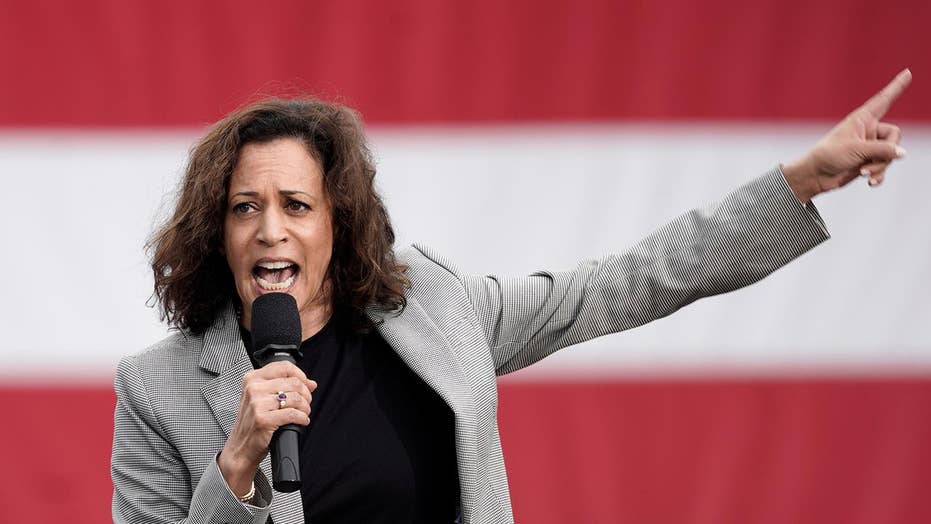The election recount process involving Kamala Harris has been a topic of immense interest and debate in recent years. As one of the most influential political figures in the United States, Kamala's involvement in various election recounts highlights the importance of transparency and accountability in democratic processes. Understanding the intricacies of election recounts can help citizens make informed decisions about their political participation.
Election recounts are a critical component of the democratic system, ensuring that every vote is counted accurately and fairly. Kamala Harris, as both a former California Attorney General and current Vice President of the United States, has played a pivotal role in advocating for electoral integrity. Her experience in overseeing election processes has provided valuable insights into the complexities of recounts.
This article delves into the details of election recounts, focusing on Kamala Harris's contributions to electoral reform and the importance of accurate vote counting. By examining the history, process, and implications of election recounts, we aim to provide readers with a comprehensive understanding of this vital aspect of democracy.
Read also:Discover The World Of Shemale Joi A Comprehensive Guide
Table of Contents
- Biography of Kamala Harris
- Understanding the Election Recount Process
- Kamala Harris's Role in Election Recounts
- The Legal Framework for Election Recounts
- A Historical Perspective on Election Recounts
- Challenges in Conducting Election Recounts
- Technological Advancements in Election Recounts
- Public Perception of Election Recounts
- Future Directions for Election Recounts
- Conclusion
Biography of Kamala Harris
Early Life and Education
Kamala Devi Harris was born on October 20, 1964, in Oakland, California. She is the daughter of immigrants from Jamaica and India. Kamala's early life was marked by a strong emphasis on education and civic engagement. She attended Howard University, where she earned a Bachelor of Arts degree in Political Science and Economics. Later, she obtained her Juris Doctor from the University of California, Hastings College of the Law.
Professional Career
Kamala Harris's career in public service began as a prosecutor in Alameda County. She later served as the District Attorney of San Francisco and the Attorney General of California. Her dedication to justice and reform has been a defining feature of her career. Below is a summary of her key professional milestones:
| Position | Years Served |
|---|---|
| District Attorney of San Francisco | 2004-2011 |
| Attorney General of California | 2011-2017 |
| U.S. Senator | 2017-2021 |
| Vice President of the United States | 2021-Present |
Understanding the Election Recount Process
An election recount involves re-examining the votes cast in an election to verify the accuracy of the initial count. This process is typically triggered when the margin of victory is narrow, or when there are allegations of irregularities. The goal of an election recount is to ensure that the results reflect the true will of the electorate.
Key Steps in the Recount Process
- Requesting a Recount: Candidates or political parties can request a recount within a specified timeframe after the election.
- Reviewing Ballots: Election officials review ballots either manually or using electronic systems to ensure accuracy.
- Resolving Discrepancies: Any discrepancies found during the recount are addressed according to established protocols.
Kamala Harris's Role in Election Recounts
As California's Attorney General, Kamala Harris played a crucial role in overseeing election processes and ensuring their integrity. Her experience in managing large-scale electoral systems provided valuable insights into the challenges and opportunities of conducting fair and transparent recounts.
Contributions to Electoral Reform
Kamala Harris has been a vocal advocate for electoral reform, emphasizing the need for modernized voting systems and increased voter access. Her efforts have focused on:
- Expanding access to mail-in voting.
- Implementing stricter security measures for electronic voting systems.
- Ensuring that all citizens, regardless of background, have equal access to the ballot box.
The Legal Framework for Election Recounts
The legal framework for election recounts varies by jurisdiction but generally includes federal and state laws that outline the procedures for conducting recounts. These laws ensure that the process is conducted fairly and transparently, with clear guidelines for resolving disputes.
Read also:5movierulz Kannada Movie Download 2025 Your Ultimate Guide
Key Legal Provisions
According to the U.S. Election Assistance Commission, key legal provisions for election recounts include:
- Deadlines for requesting and conducting recounts.
- Standards for determining ballot validity.
- Protocols for addressing disputes and challenges.
A Historical Perspective on Election Recounts
Throughout history, election recounts have played a significant role in shaping democratic processes. Notable examples include the 2000 U.S. Presidential Election recount in Florida, which highlighted the need for improved voting systems and procedures.
Lessons Learned from Past Recounts
Historical recounts have provided valuable lessons for improving electoral systems, including:
- The importance of clear and consistent voting procedures.
- The need for robust dispute resolution mechanisms.
- The role of technology in enhancing accuracy and transparency.
Challenges in Conducting Election Recounts
Despite their importance, election recounts face numerous challenges, including logistical complexities, partisan disputes, and public skepticism. Addressing these challenges requires a commitment to transparency and impartiality.
Common Challenges
- Ensuring sufficient resources for conducting recounts.
- Maintaining public trust in the electoral process.
- Managing the impact of misinformation and disinformation.
Technological Advancements in Election Recounts
Advancements in technology have significantly improved the efficiency and accuracy of election recounts. Modern systems, such as optical scanners and blockchain technology, offer new possibilities for enhancing the integrity of the voting process.
Benefits of Technology
- Increased speed and accuracy in counting votes.
- Improved security and transparency in vote verification.
- Enhanced accessibility for voters with disabilities.
Public Perception of Election Recounts
Public perception of election recounts is shaped by a variety of factors, including media coverage, political rhetoric, and personal experiences. Ensuring that the public understands the importance of recounts is essential for maintaining trust in democratic institutions.
Factors Influencing Perception
- The role of media in shaping public opinion.
- The impact of political polarization on perceptions of fairness.
- The influence of education and civic engagement programs.
Future Directions for Election Recounts
Looking ahead, the future of election recounts will likely involve continued advancements in technology, increased emphasis on voter education, and ongoing efforts to address challenges such as disinformation and voter suppression. These developments will be crucial for ensuring the integrity of democratic processes.
Potential Innovations
- Expanded use of blockchain technology for secure vote verification.
- Increased investment in voter education programs.
- Development of international standards for conducting recounts.
Conclusion
In conclusion, election recounts are a vital component of democratic systems, ensuring the accuracy and fairness of election results. Kamala Harris's contributions to electoral reform have highlighted the importance of transparency and accountability in this process. By understanding the history, process, and challenges of election recounts, citizens can play an active role in safeguarding the integrity of their democracy.
We invite you to share your thoughts and experiences with election recounts in the comments section below. Additionally, feel free to explore other articles on our website for more insights into political and social issues.

